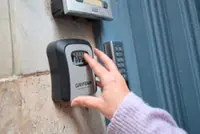KUALA LUMPUR: In light of calls from the hotel industry to regulate short-term rental accommodations (STRA), Airbnb has also proposed various guidelines to complement the government efforts towards crafting the regulations.
This includes the implementation of a “three strikes law” where an individual's registration as an Airbnb host would be revoked following repeated acts of noise and nuisance, says Mich Goh, Airbnb’s Public Policy head for South-East Asia, India, Hong Kong and Taiwan.





